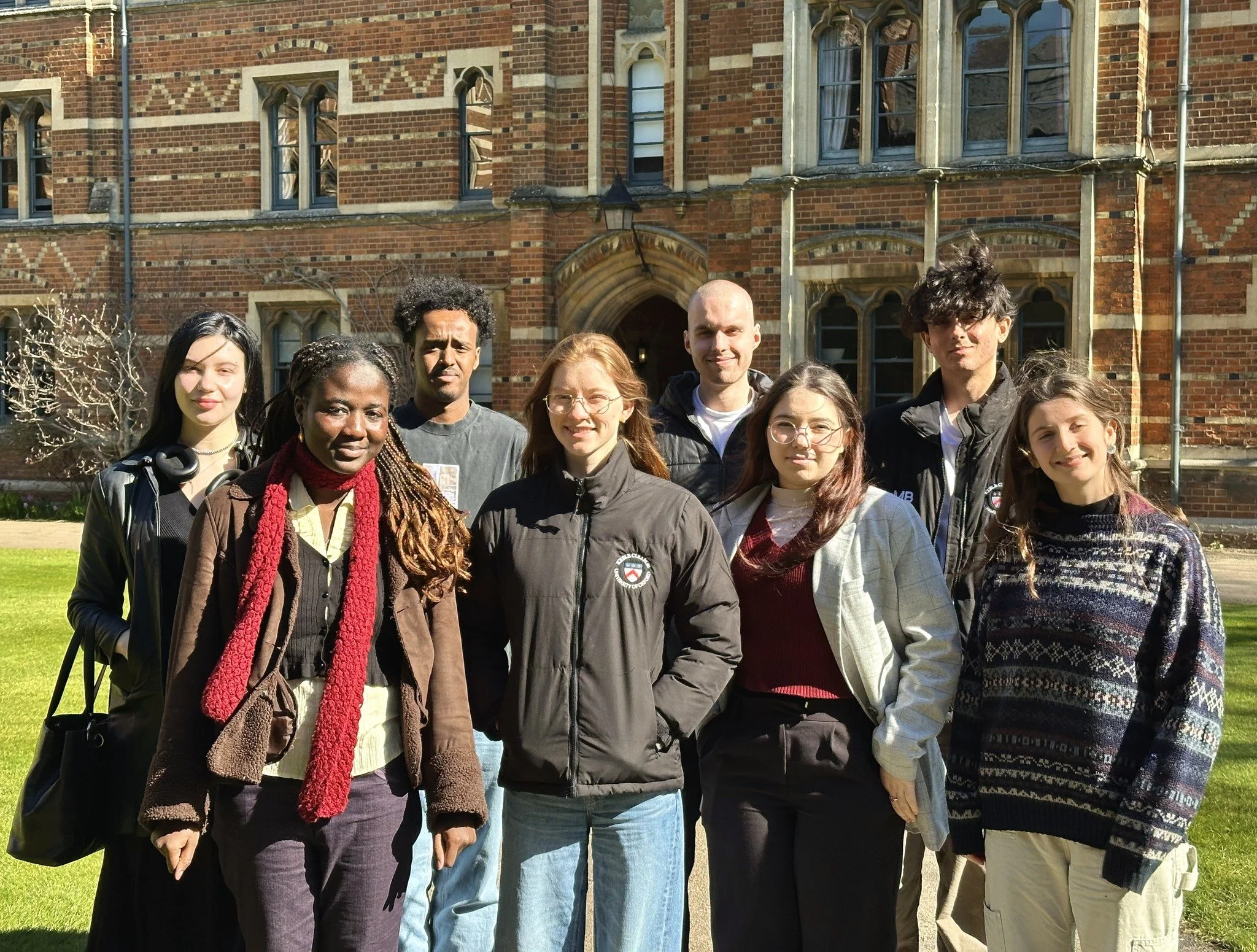Bind Research | Drugging the ‘Undruggable’
The Bind Research Team in Keble, including alumni Melissa Strange (second from left) and Gogulan Karunanithy (far right)
Launched in 2025, Bind Research is the UK’s first Focused Research Organisation (FRO) with a mission to make disordered proteins druggable. Bind Research was established with support from the UK’s Research Ventures Catalyst programme, alongside matched funding from industry, philanthropic organisations, and charitable donors. Bind’s founding team consists of Gabi Heller, Thomas Löhr, Marcus Harrison and two Keble alumni, Gogulan (Gogs) Karunanithy (2011 MChem DPhil Chemistry) and Melissa Strange (2018 EMBA). Gogs and Melissa hadn’t actually met prior to the establishment of Bind Research, meeting in person for the first time at the College when Keble recently hosted Bind’s first in-person meeting.
Gogulan Karunanithy (2011 MChem DPhil Chemistry) writes:
Proteins are essential biomolecules in our bodies that perform a wide range of functions, from digesting food and transporting molecules to fighting disease. Often described as molecular machines, proteins are typically thought of as having well-defined shapes that determine how they work. When something goes wrong in the body, treatments often involve therapeutics that interact with specific proteins by binding to particular regions of their structure and altering their function.
However, not all proteins conform to this traditional view. Intrinsically disordered proteins (IDPs) or intrinsically disordered regions (IDRs) do not adopt a stable, three-dimensional structure under normal physiological conditions. Instead, they exist as dynamic ensembles of shapes, giving them remarkable versatility in processes such as signalling, transcription, and regulation. Remarkably, it’s estimated that over 30% of human proteins contain intrinsically disordered regions. Importantly, IDPs are also involved in many difficult-to-treat diseases, including cancer, neurodegenerative disorders, and viral infections.
Despite their prevalence and significant impact on human health, intrinsically disordered proteins (IDPs) have long been overlooked as drug targets, frequently labelled as being ‘undruggable’. Their structural complexity and lack of traditional binding pockets have made them difficult to target with conventional small-molecule drugs. However, recent scientific advances are challenging this view, paving the way for novel therapies that directly engage with disordered proteins.
Taking on this challenge, Bind Research is the UK’s first not-for-profit Focused Research Organisation (FRO) dedicated to transforming drug discovery through the targeting of disordered proteins.
Bind Research’s mission is to develop innovative experimental and computational tools to characterise disordered protein–drug interactions with unprecedented speed and precision. It will also generate rich, high-resolution datasets that capture the dynamic behaviour of disordered proteins, enabling the training of advanced AI models to predict interactions and accelerate the drug discovery process.
As an FRO, Bind Research operates in a unique model that blends the strengths of academia and industry within a start-up-like environment. Crucially, its not-for-profit status ensures that the outcomes of its work (tools, data, and insights) are developed as public assets, fostering broader innovation and accelerating scientific progress. This structure not only supports the discovery of treatments for widespread diseases but also empowers research into neglected and underserved conditions.
For more information see: https://bindresearch.org/





